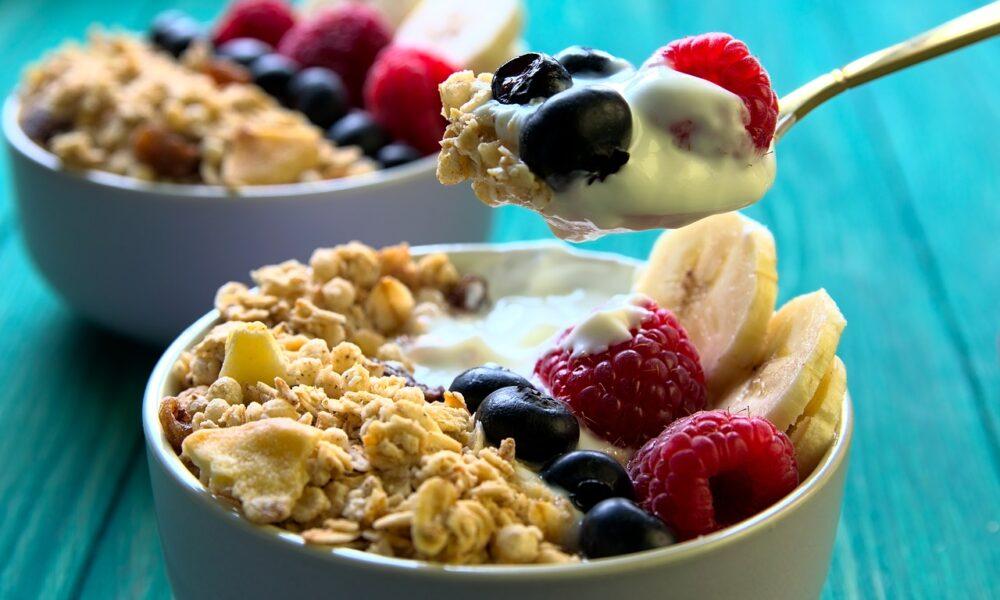

After an intense gym session, you may seek a post-workout snack to replenish your energy. While protein bars are often the go-to choice due to their role in muscle synthesis, numerous other snack options are available to diversify your refueling routine.
The fuel you consume pre-workout powers your exercise. The post-workout nutrition is equally crucial. Adequate nutrition does not come from supplements. It comes from meals and snacks. These are foods that your body would appreciate since they contribute to achieving your fitness objectives.
Read more to discover the recommended snacks before and after your workout.
What to Eat Before a Workout?
To optimize your body’s performance, dieticians recommend consuming carbohydrate-rich foods pre-workout. Consuming a snack or meal containing approximately 10-20 grams of protein is also advisable.
There are general guidelines to follow regarding pre and post-workout meals. However, the most effective approach is to consult your trainer or a fitness nutritionist.
Properly nourishing your body with the appropriate nutrients before engaging in physical activity gives you the energy and stamina to enhance your performance. Every macronutrient plays a distinct role in pre-workout. Nevertheless, the optimal ratio of their consumption depends on the individual and their exercise type. Outlined below is a concise overview of the function of each macronutrient.
Carbohydrates
Carbohydrates, also known as carbs, are crucial in fueling your muscles. Your body processes and stores glucose as glycogen when you consume carbs. The liver and muscles primarily store glycogen.
Numerous studies consistently demonstrate that carbs can increase glycogen stores and enhance utilization. Carbs also promote the oxidation of carbohydrates during exercise. During short and intense exercise, your muscles rely heavily on glycogen stores as their primary energy source. However, during more extended-duration exercises, the extent to which carbs become utilized depends on factors like:
- The type of training
- Your overall diet
- The intensity of the activity
Protein
A study by the Harvard School of Public Health has demonstrated the potential benefits of consuming protein-rich foods before a workout. The ingestion of protein, either alone or in conjunction with carbohydrates, before exercise is proven to stimulate muscle protein synthesis.
In a previous small-scale study, the researchers noted that consuming 25 grams of whey protein before exercise enhanced overall anabolism. Additionally, consuming protein before practice offers several other advantages:
- Enhanced muscle mass
- Accelerated muscle recovery and repair
- Lean body composition
- Elevated muscle function
Fat
Several studies have explored the impact of fat consumption on athletic performance. Although these studies primarily focused on the effects of long-term high-fat diets, fats have a crucial influence on pre-workout.
During short and high-intensity workout bouts, glycogen is the primary fuel source. Fat becomes the predominant fuel source for longer durations of moderate-to-low-intensity exercise. Adopting a low-carbohydrate, high-fat diet enhances body composition and increases maximal oxygen uptake when consumed before high-intensity interval workouts.
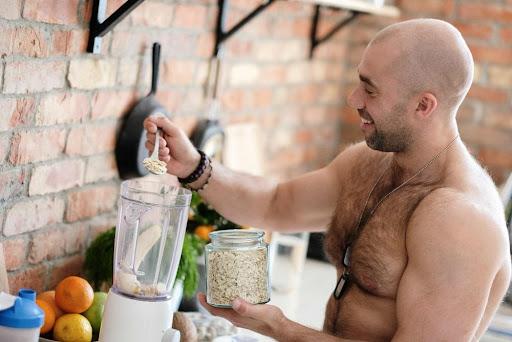
When to Eat Before a Workout
Optimal timing for meals before a workout generally falls within 30 minutes to three hours pre-workout. This time frame allows digestion to occur before engaging in physical activity while providing sufficient energy from consumed calories.
However, it is essential to note that individual preferences and body responses may vary. Therefore, determining your body’s most suitable time frame may require some personal experimentation.
A full meal before hitting the gym may not be feasible if you work out early in the morning. In such cases, a small snack or mini-breakfast can adequately support your energy needs. For instance, you can enjoy your protein-rich smoothie approximately 30 minutes to an hour before a workout. Below are general tips for timing your meals pre-workout:
- If your workout lasts longer than an hour, having a snack 45 to 60 minutes before an activity is ideal.
- Consuming a high-protein snack about 30 minutes before your workout would be best to achieve significant muscle growth.
- Prolonged endurance activities like a marathon require you to prioritize your carbohydrate consumption. To adequately prepare for the event, consider gradually increasing your carb intake starting as early as 48 hours pre-workout.
Water is an essential pre-workout. Consider consuming approximately two cups of water roughly two to three hours before exercising. You can drink one cup of water about 10 to 20 minutes before the workout.
The primary objective is to prevent dehydration, which can lead to diminished energy levels, muscle cramps, or spasms. It is crucial to strike a balance and avoid excessive water consumption, which can be challenging and potentially harmful.
It’s vital to prioritize hydration and refueling your energy levels during your workout. You should consume one cup of water every 15 to 30 minutes of vigorous physical activity, particularly if you’re sweating heavily or exercising in a warm environment.
Ideas of Food and Snacks for Pre-Workout
When it comes to pre-workout snacks, it’s essential to choose foods you enjoy eating. Irrespective of your schedule, these nutritious snacks can provide the necessary fuel you require for optimal muscle performance.
Apple and Peanut Butter
The apple and peanut butter combination is a straightforward snack that consists of only two ingredients. This timeless, plant-based treat is delicious and promotes a healthy lifestyle.
This delightful combination offers a blend of fiber from the apple and the nourishing benefits of protein and healthy fats from the peanut butter. Indulging in this snack is an excellent way to curb hunger and stay satisfied for a considerable pre-workout period.
Almond Coconut Mocha Smoothie
The almond coconut mocha smoothie is rich in protein and low in fat and sugar. What makes it even better is that it is prepared with silk almond milk, making it both dairy-free and lactose-free.
This exquisite and effortless pre-workout smoothie:
- Enhances energy levels
- Promotes muscle growth
- Supports your weight loss journey
Additionally, this smoothie is entirely plant-based.
High Protein Oatmeal
High-protein oatmeal is an ideal source of protein for priming your muscles before a workout. Proteins provide the essential nutrients your body requires to engage in physical activity.
However, the advantages of high-protein oatmeal extend far beyond its protein content. This snack also contains essential fats that contribute to joint support. Consequently, you can customize this pre-workout snack to suit your individual preferences.
Whole Orange Smoothie
The whole orange smoothie is one of the incredibly refreshing smoothies. While this smoothie is perfect for cooling down after intense activity, it is handy as a pre-workout snack.
Oranges offer a generous dose of Vitamin C, which boosts your immune system. It’s also packed with nutrition and flavor.
Peanut Butter and Banana Toast
Your desire for peanut butter and banana toast is a nutritious option for a pre-workout snack. This delectable snack offers a wealth of beneficial unsaturated fats, protein, fiber, and complex carbs.
The harmonious blend of protein and fiber helps to satiate your hunger and provides a steady supply of energy before a workout.
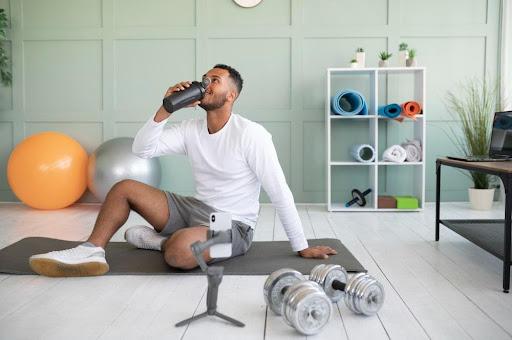
What to Do Post-Workout
Following an intense workout, your body requires adequate time for recovery. However, allowing your muscles a well-deserved rest can sometimes feel more challenging than pushing yourself to the limit.
Completing a workout session should not signify the end of your fitness journey. The actions you take post-workout are just as crucial as the ones you perform during the workout. Below are the things to do after a workout.
Stay Hydrated
Proper hydration is crucial after exercise; drinking water is the most effective way to replenish your fluids. When you work out, your body loses water through sweat, depleting its reserves.
Failing to stay hydrated can result in muscle cramps, fatigue, headaches, and diminished physical performance. That’s why maintaining optimal hydration levels is essential for a successful recovery.
Modify Your Upcoming Task
Incorporating active rest into your post-intense exercise routine is crucial. Resting does not involve simply sitting on the couch. Opt for gentle exercises that promote recovery without putting excessive strain on your body.
Consume Fast-Absorbing Carbs
You should try to consume a fast-digesting carbohydrate and protein source within 30 to 60 minutes after your exercise session. Opting for a liquid form, such as protein shakes, can be convenient and facilitate better absorption by your body.
The recommended portion sizes should have a 2:1 ratio of carbohydrates to proteins. Protein and carbs play crucial roles in muscle recovery and repair.
Perform a Brief Self-Assessment of your Body
After completing your workout, take a moment to evaluate how your body feels. It’s crucial to avoid excessive strain or potential injuries. Achieving the right balance means walking away from your workout feeling invigorated and challenged.
Things to Eat Post-Workout
After a workout, your body undergoes the process of replenishing glycogen stores and regenerating muscle proteins. Consuming the appropriate proteins shortly after exercising can expedite this recovery process. Below are foods that you can take post-workout:
Carbohydrates
Consuming foods rich in carbohydrates is highly recommended to mitigate the decline in immune function that may arise following vigorous activity.
Incorporating carbohydrates into a post-workout snack is particularly beneficial as it aids in the restoration of glycogen reserves. Combining carbohydrates with a protein source that supplies 0.3 grams per kilogram of body weight would be best for optimal benefits.
Foods rich in carbohydrates include:
- Grains
- Sweet potatoes
- Fruits with high levels of carbs.
Protein
Proteins are crucial in regenerating new cells, particularly in the muscles. Additionally, they encompass all the essential amino acids, which you can only obtain through dietary sources after a workout.
A study conducted in 2007 revealed that proteins derived from milk outperformed those derived from other sources. Milk proteins exhibit greater effectiveness in facilitating the rapid growth of lean muscles. Soy proteins also contribute to maintaining and building muscle mass. Examples of foods rich in dairy proteins are:
- Cottage cheese
- Yogurt
- Ricotta cheese
- Kefir
Eggs are also a good source of proteins. The yolk contains nutrients that lead to a more remarkable protein synthesis compared to consuming only egg whites, which have an equivalent amount of protein.
Water
Drinking an ample amount of water after a workout is crucial. Maintaining proper hydration is vital to maximizing the advantages of exercise, while post-workout hydration helps safeguard against dehydration.
Water requirements differ for each individual, influenced by factors such as the nature of the exercise, perspiration levels, and other individual considerations.






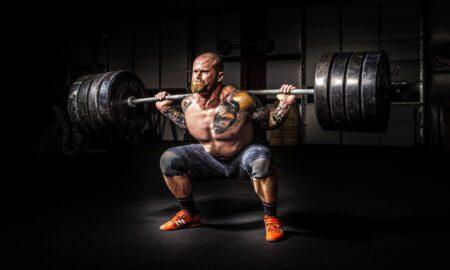
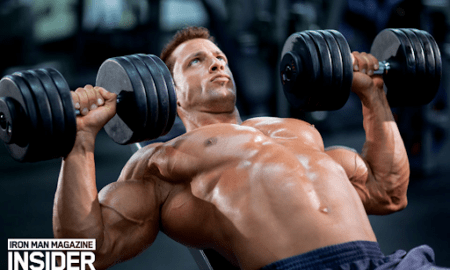







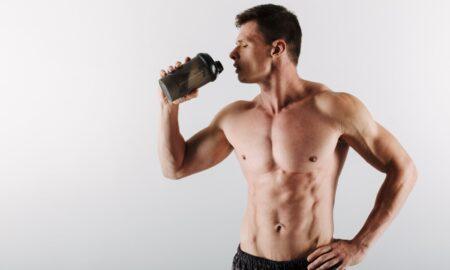
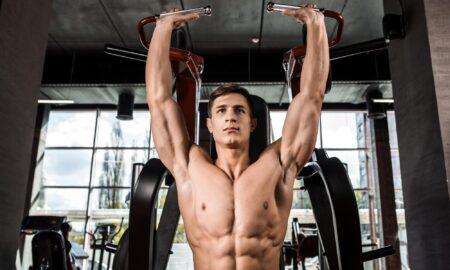

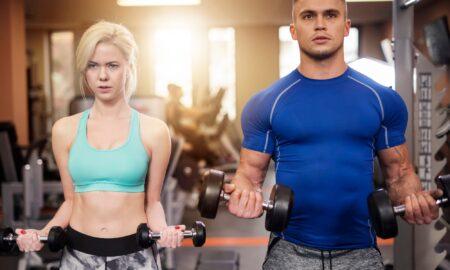
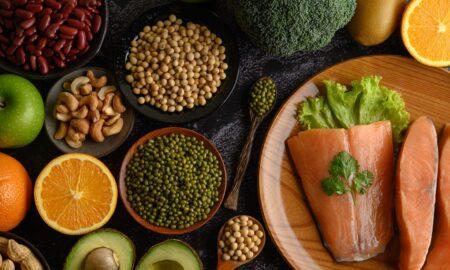

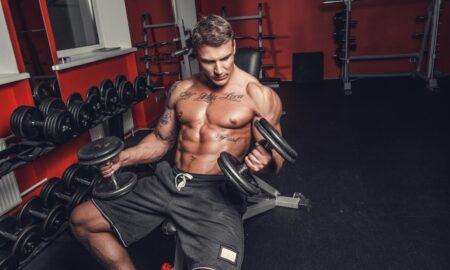
You must be logged in to post a comment Login